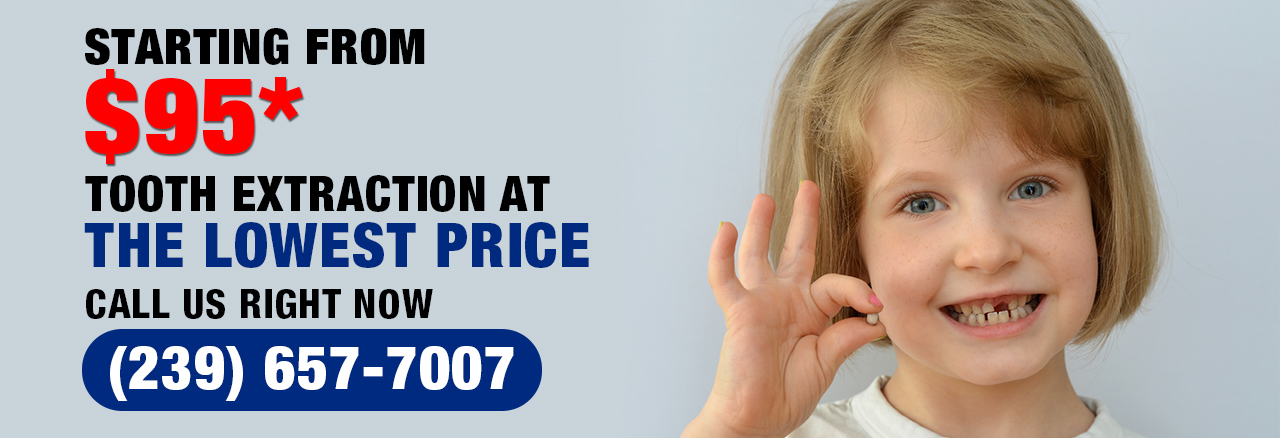Tooth Extractions
Tooth extraction is the removal of a tooth from its socket in the bone.
Common reasons that can result in a tooth extraction are:
- the tooth is too badly decayed/infected,
- the tooth is damaged due to trauma,
- there is overcrowding of the teeth,
- the tooth has become loose due to gum disease.
Things to watch out for after extraction:
- The blood clot in the socket falls off days after the extraction
- Infection
- Nerve damage
- Fractures caused by instruments, hardware, or implants used during the procedure
- Damage to other teeth or restorations
- Bruising and swelling at the treatment site
- Discomfort or pain at the injection site
- Incomplete relief of pain
- Reaction to local anesthesia or other medicines given during or after the procedure
- Slow healing of wounds
- Improper bite, requiring additional procedures
Care After Extraction
After surgery and throughout the day after surgery, you should plan to rest at home for the remainder of the day. If you have been given a sedative, lie down at home until it has completely worn off. Reading, watching television, and taking a nap are examples of quiet activities that you may enjoy until bedtime.
Proper mouth care after oral surgery will speed healing and reduce complications.
The following suggestions are offered to help you recover quickly and safely from oral surgery.
Bleeding
Expect some bleeding to occur: oozing may continue for 24 hours. To help stop the bleeding, gently bite on folded gauze for an hour as needed during the first 24 hours. If bleeding has not subsided after 24 hours, you should inform your dentist. So that bleeding does not worsen, engage in non-strenuous, quiet activities.
Protecting The Blood Clot
- Do not rinse, spit, brush your teeth, or use a mouthwash.
- Do not exercise strenuously for 7 to 10 days after surgery.
- Do not pick at the surgical site.
- Do not use a straw.
- Do not use a Water Pik.
- Do not drink alcoholic or carbonated beverages.
- If you smoke, do not do so for 24 hours or longer.
- Do not chew tobacco for 1 week.
Smoking or chewing tobacco will greatly increase your postoperative problems.
Swelling
Expect swelling, especially if your surgery was difficult. You may even see some bruising on your cheek. Use ice bags immediately and for the next 24 hours. Apply them at regular intervals: put the ice bags on for 30 minutes and take them off for 15 minutes. If you had teeth removed on both sides, alternate a single ice pack from side to side every 15 minutes. Keep your head elevated on two or three pillows while you rest or sleep. The swelling will peak in 2 to 3 days and should subside after that. If you notice any increase in swelling after the first 48 hours, a fever, a bad taste in your mouth, or pus, you may have an infection. Call your dentist.
Pain
After oral surgery, you may feel some discomfort. It can be eased by taking pain medications as directed.
Eating
It is very important to eat and drink enough after oral surgery. The first day, eat such cool, soft foods as instant breakfasts, milk-shakes, yogurt, and applesauce. The next day, advance to semisoft foods when you can tolerate them. Avoid tough, hard, chewy, hot, and spicy foods.
The day after and the week following surgery
These guidelines will help you continue your recovery.
Ice bags
If circumstances permit, continue using ice bags the morning after surgery. Do not use them for a longer period.
Heat
Starting 24 hours after surgery, apply warm, moist heat to the outside of your face several times daily for 2 to 3 days.
Oral hygiene
Brush your teeth as best you can after meals and at bed-time. Rinse your mouth with warm salt water (1/2 teaspoon table salt in an 8 ounce glass of warm water) every 2 hours and after meals. Brushing and rinsing will help maintain oral hygiene and prevent infections.
Food
Return to your normal diet as soon as you can. While you may have some stiffness in your jaws for several days, chewing will help loosen your jaw muscles.
Medications
Continue taking your pain medications as prescribed. Since the pain should begin to diminish after 2 days, take pain medication only when needed.
Blood
If you see any blood in nasal secretions or after blowing your nose, call your dentist.
Stitches
- If stitches were used. You must keep your appointment to have them removed.
- If dissolvable stitches are used, they will dissolve in 3 to 14 days. You do not have to return to the office to have these stitches removed.
- If there are no stitches used, then nothings need to be done.



